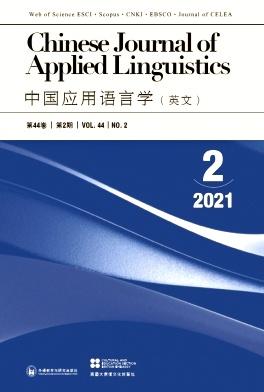Effects of Written Corrective Feedback on College EFL Students’ Writing Accuracy and Linguistic Knowledge Acquisition
IF 1.1
4区 教育学
Q3 EDUCATION & EDUCATIONAL RESEARCH
引用次数: 0
Abstract
Abstract Set at the interface between second language acquisition and second language writing, this study examines how different types of written corrective feedback (WCF) influence the writing accuracy of Chinese college students learning English as a Foreign Language (EFL) and whether WCF facilitates the students’ grasp of the focused linguistic knowledge. The participants (n = 60) were divided into direct correction group (n = 20), indirect error-coding group (n = 20) and metalinguistic explanation group (n = 20). The three groups wrote four essays in two months and received WCF for the first three essays on the five targeted error types, namely tense errors, confusion of different forms of a word, word (articles, prepositions, etc.) missing, errors in subject-verb agreement and inappropriate verb-noun collocations. The results show that all three types of WCF improved students’ writing accuracy but none of them had any statistical advantage, and the metalinguistic WCF was more effective than the other two forms in facilitating the acquisition of the targeted linguistic features. These results shed some light on teaching and consolidation of language points through writing in EFL contexts.书面纠正反馈对大学生英语写作准确性和语言知识习得的影响
摘要本研究以第二语言习得和第二语言写作之间的界面为背景,考察了不同类型的书面纠正反馈(WCF)如何影响中国大学生学习英语的写作准确性,以及WCF是否有助于学生掌握重点语言知识。参与者(n=60)被分为直接纠正组(n=20)、间接错误编码组(n=2 0)和元语言解释组(n=3 0)。三组在两个月内写了四篇文章,并在前三篇文章中获得了关于五种有针对性的错误类型的WCF,即时态错误、不同形式的单词混淆、单词(冠词、介词等)缺失、主谓一致错误和不恰当的动名词搭配。结果表明,三种类型的WCF都提高了学生的写作准确性,但都没有任何统计优势,并且元语言WCF在促进目标语言特征的获取方面比其他两种形式更有效。这些结果为在EFL语境中通过写作进行语言点的教学和巩固提供了一些启示。
本文章由计算机程序翻译,如有差异,请以英文原文为准。
求助全文
约1分钟内获得全文
求助全文
来源期刊

Chinese Journal of Applied Linguistics
EDUCATION & EDUCATIONAL RESEARCH-
CiteScore
1.50
自引率
0.00%
发文量
377
期刊介绍:
The Chinese Journal of Applied Linguistics (CJAL) (formerly known as Teaching English in China – CELEA Journal) was created in 1978 as a newsletter by the British Council, Beijing. It is the affiliated journal of the China English Language Education Association (founded in 1981 and now the Chinese affiliate of AILA [International Association of Applied Linguistics]). The Chinese Journal of Applied Linguistics is the only English language teaching (ELT) journal in China that is published in English, serving as a window to Chinese reform on ELT for professionals in China and around the world. The journal is internationally focused, fully refereed, and its articles address a wide variety of topics in Chinese applied linguistics which include – but also reach beyond – the topics of language education and second language acquisition.
 求助内容:
求助内容: 应助结果提醒方式:
应助结果提醒方式:


